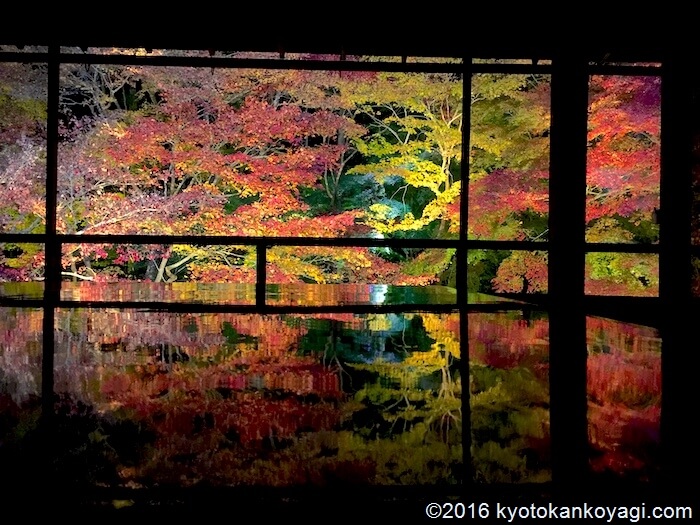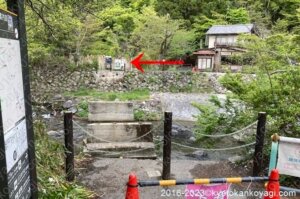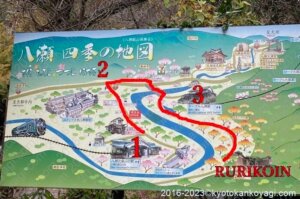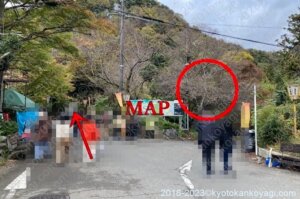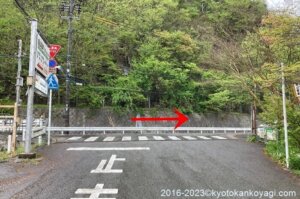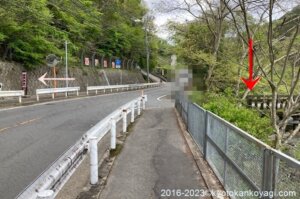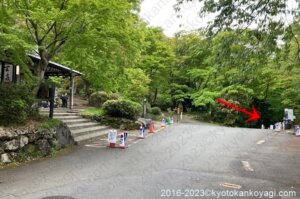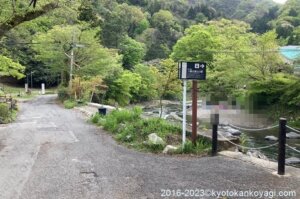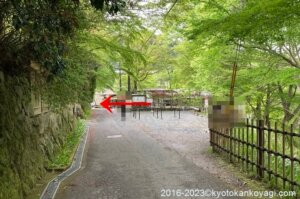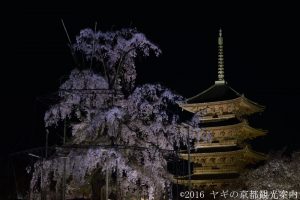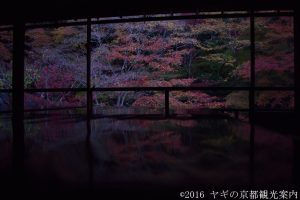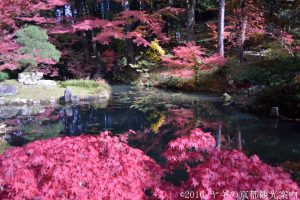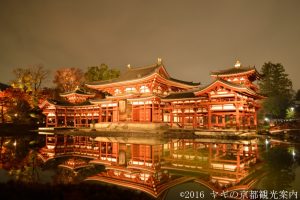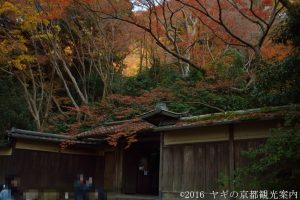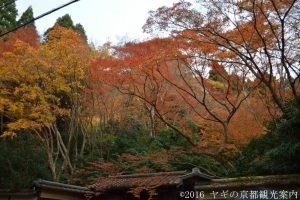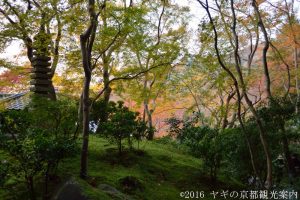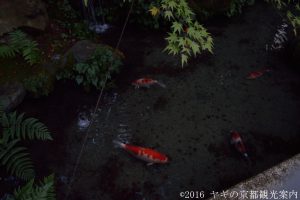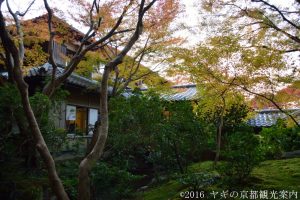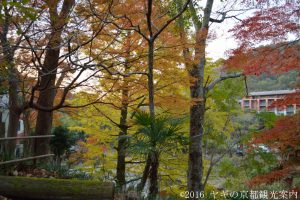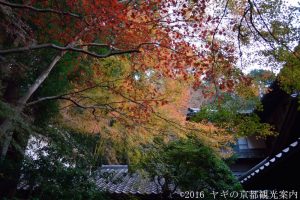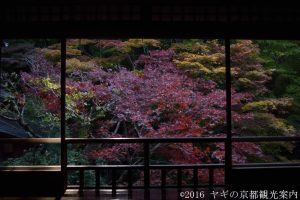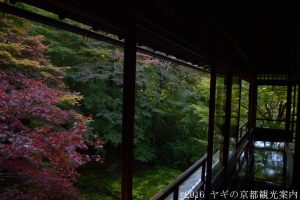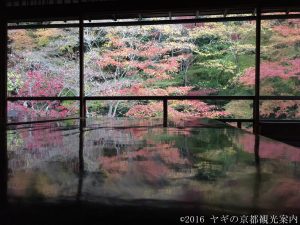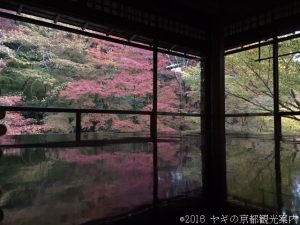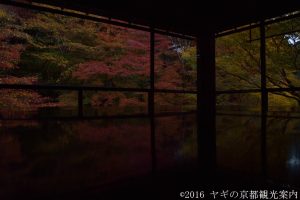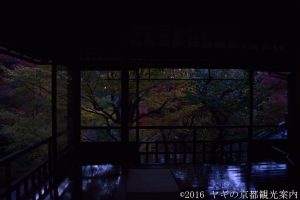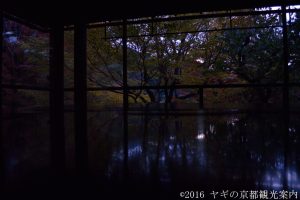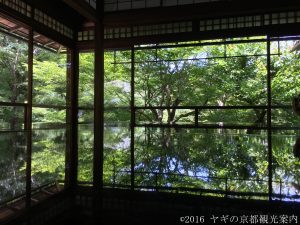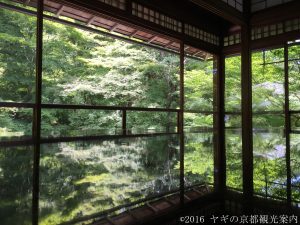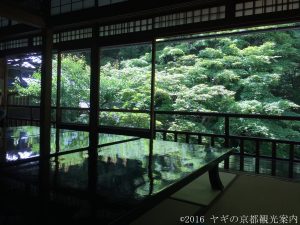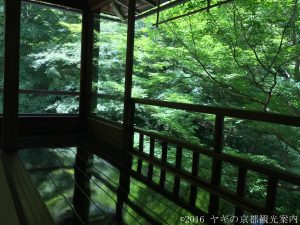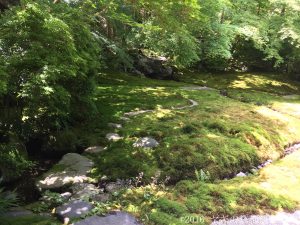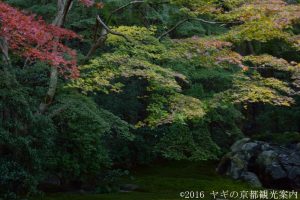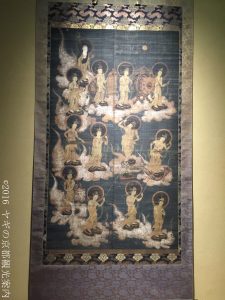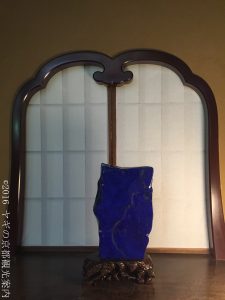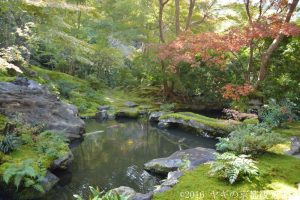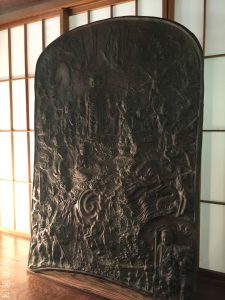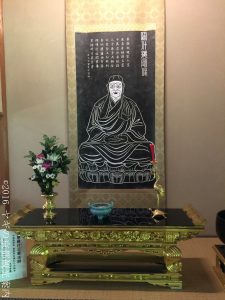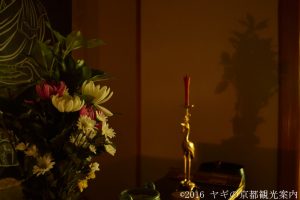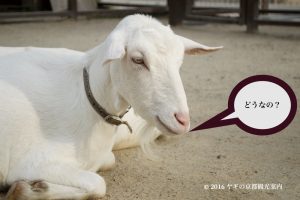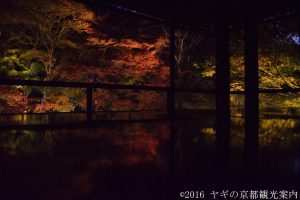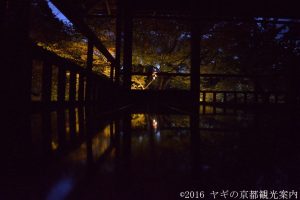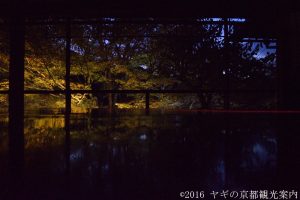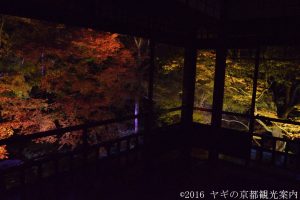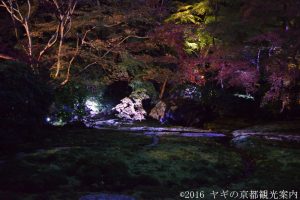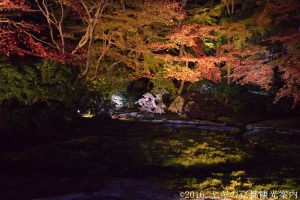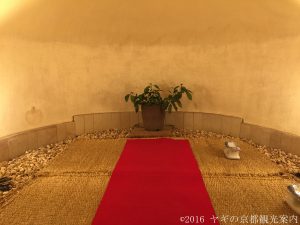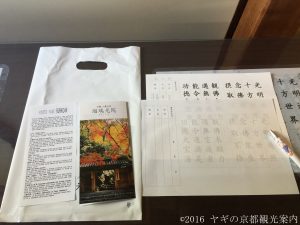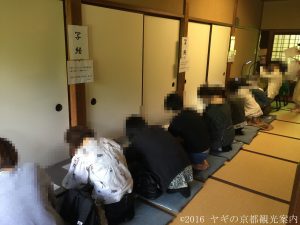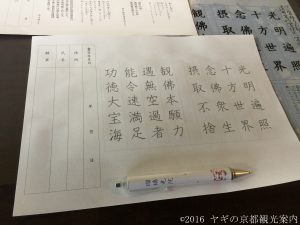Breaking 2025
Schedule 2025
Rurikoin temple is not open to public through the year. We can visit it only in spring and fall.
- In 2025, Rurikoin temple is open to us from 10/1 to 12/14.
- Open hours: 10:00~17:00 (Entrance closes at 16:30)
- 11/8~12/7, we are not allowed to enter Rurikoin without reservation at random. Chek out the website of Rurikoin.
- We can make the random reservation by 10/5.
11/30
Extraordinary in the morning light.
10/21
Today, the reservation of 2024 started. Check out the English page of Rurikoin (Google translate) and click “予約ボタン” and make reservations.
2023 Breaking
11/23 ヤギ撮影隊しっぽり闖入済
The Migoro 2023 kicks off. Now we can enjoy the leaves in green, yellow, and red. The best time to admire will arrive about a week later.

Make sure with the video.
Some Aomomijis are still alive.


Don’t miss the 1st floor.
11/11

The bridge is still missing.
We’ll go to the other side but there’s no bridge.
We take the detour route. It takes about 15 minutes to reach Rurikoin.
In front of Yase Hieizanguchi sta., you’ll find this view.

In the red circle, Kan Zakuras (Sakura blooms in fall) bloom.
From Yase Hieizanguchi station, go up the road and turn right.
You’ll find a bridge (red allow) and cross it. The white arrow indicates the bus stop for Ohara. I took this photo near the bus stop for Kawaramachi/ Kokusai kaikan.
Then you’ll find Cable Yase station. Climb down the slope.
We’ll reach the other side of the station.
Just walk straight. You’ll find people wait in line. The red allow indicates the entrance of Rurikoin temple. The road leads to Mikage shrine. Mikage Matsuri, the most important ritual held prior to Aoi Matsuri.


Very important one. Aoi matsuri doesn’t take place without it.

Mikage shrine is loceated in the middle of a mountain. Don’t go there. BEAR in the area.
10/10

Migoro on 11/23/2022
We can make reservations at the website of Rurikoin temple (in Japanese only).
Night illumination is available at the website of JR Tokai tours(in Japanese only).
2022 Autumn leaves
11月23日 ヤギ撮影隊緊急入魂乱入済
In Migoro on November 23th. Check the video at 04:26. Now the bridge located between the station and Rurikoin is not available. It takes about 20 minutes to detour.
A short history of Rurikoin
Rurikoin is a small Jodo school temple in the Yase mountain. It belongs to Komyoji temple in Gifu prefecture. As same as some the famous temple like Kinkakuji or Ryoanji temple, it used be a villa.
Rurikoin was founded in 2005. It is a “new” temple because most of the shrines and temples in Kyoto were built in the Edo period (1603-1868). For example, the pagoda in Toji temple was donated by Tokugawa Iemitsu, the 3rd Shogun of the Tokugawa Shogunate, to Toji temple. Thanks to its short history, Rurikoin is famous for “Yuka momiji”, rather than main hall or pagoda.
Rurikoin, 瑠璃光院, means “A temple in light of lapis lazuli.” Lapis lazuli is one of seven colors stand for “Gokuraku jodo”, or “極楽浄土”, the paradise in the Buddhism. The Jodo school was named after the word. It is open to public in the short period of time in Spring and Fall.
Yukamomiji of Rurikoin 瑠璃光院の床紅葉
Let me show you what “Yukamomiji” is. “Yuka” is a floor, and “momoji” is a maple (leaves). Yukamomiji means the way to admire a reflection of maple leaves on a floor. This is a peculiar way Japanese people take to enjoy something.
For example, on spotting pond or river, we thirst for “Mizukagami”. In Mizukagami technique, we considre a surface of water as a mirror, we love to see a reflection on it. We are not interested in things in parallel. As I described in the article on Komyoin temple, we love some idea in the Zen Buddhism. The idea is “即今、当処、自己”. In this, the moment we are in is the most important. A surface of water is easy to roar with subtle breeze or a touch of a falling leaf. We can adore Mizukagami only in a moment when a water is calm. As a common Japanese goat, I believe that’s the reason why we long for Mizukagami.

What to see in Rurikoin? 瑠璃光院のみどころ
Sanmon gate 三門
This is the entrance gate of Rurikoin. We’ll discuss about it later, we wait in front of the gate before we pass through it. Don’t worry, it is not boring to waiting there because the maple leaves gain our expectancy on the Yukamomiji inside.
Yamaroji no niwa garden 山露地の庭
After the entrance gate, we find we are in Yamaroji no niwa garden located in front of the main entrance. “Yamaroji no niwa” means “The garden in mountain dew.”
In the garden, there is a stream surrounded by beautiful mosses. It reminds us that the temple we are entering used be an auberge.
Voila! The autumn leaves in the Yase mountain!
[speech_bubble type=”drop” subtype=”L1″ icon=”i.jpg” name=”Ichikishima hime”] This is one of the most exquisite Autumn colors in Kyoto! [/speech_bubble]
Syoin builiding 書院
The beautiful gardens belong to this Syoin building.
Ruri no niwa 瑠璃の庭
Autumn in Ruri no niwa on the 2nd floor
“Ruri no niwa” means “the garden of lapis lazuli.” It belongs to Shoin building and we admire it on the 2nd floor. I said Yukamomiji is a reflection on a floor but in Rurikoin, we enjoy a reflection on a surface of a polished glossy table.
The most stunning moment in Ruri no niwa arrives with twilight. In the room, we have no artificial lighting. Only the very last daylight of a day caresses us.
The green maples in Ruri no niwa 瑠璃の庭の青もみじ
These days, green maple lures many Kyoto enthusiasts. Ruri no niwa has one of the most amazing green maples in Kyoto.
Autumn in Ruri no niwa on the 1st floor
Ruri no niwa of the 1st floor view.
In the room on the 1st floor, we can see hand scrolls and paintings. In the 1st picture, we can see many bodhisattvas. This hand scroll is called “Rai ko zu”, or “来迎図.” These bodhisattvas are coming down to the earth to help people in suffer. The stone in the 2nd picture is Lapis lazuli. In some occasion, Macha is served in this room.
Garyo no niwa 臥龍の庭(がりょうのにわ)
“Gary no niwa” means “the garden a dragon is laying down”. The small pond and rocks stand for a dragon ascending to heaven.
The relief work in the 1st picture is titled “The nirvana and the hell”. The bonze in the 2nd picture is Kumarajiva who translate “The Heart Sutra”, the most popular sutra in Japan, into ancient Chinese language. The Heart Sutra we adore today is the translation of his.
The outstanding translation in the sutra is “色即是空 空即是色.” It reads “shiki soku zeku, ku soku ze siki” and means “nothing has its substance. The thing we call substance depends on us”. Let me show you an example.
When I bleat, how does it sound?
In English, “Baaah.”
In Japanese, “Meeeh.”
They sound different because my bleat has no substance. My bleat depends on us (or the language we use.)
Ruri no niwa illuminated 瑠璃の庭のライトアップ
We are on the 2nd floor again. Ruri no niwa is illuminated as same as other gardens. Illumination in some landmarks somtimes rough lighting but that of Ruri no niwa is nothing but tender and calm. We can enjoy the maple leaves take advantage of the pillars as frame.
We are back to the 1st floor again. The 2nd floor is usually crowded many people. On the other hand, the 1st floor is very quiet.
Steam bath 釜風呂
The word “Yase” originally means “the arrow stuck in the back.” The name bases on a story of the Emperor Temnu; On his fight for regaining his throne, he narrowly escaped the enemy’s attack with arrows stuck in his back. He hide in a mountain we call Yasa today and he healed the wound in a steam bath there.
Due to the story, Rurikoin has a steam bath. (Sorry, we don’t take it.)
Let us copy Sutra! 写経体験
At the entrance, we can have a plastic bag contains brochure, pen, and Sutra copy kit.
On the 2nd floor, there is a room for copying sutra.
Never written Kanji? Don’t worry, all we have to do is just tracing the Kanjis. The sutra means the Buddha saves the people who believe in him and their lives will be fulfilled.
[speech_bubble type=”drop” subtype=”L1″ icon=”y.jpg” name=”やぎももさん”]We can bring it to our home![/speech_bubble]
How to enter Rurikoin
It is not easy to enter Rurikoin because we have lots of waiting time. The following is the way I took in the last fall.
1 At the blue alien, we buy an entrance ticket. The fee is 2,000 yen. On the ticket, the time we are supposed to be there.
2 By the time indicated on the ticket, we must be near ticket booth. On the indicated time, we form a row and walk to the blue alien.
3 At the blue alien, we wait in line for 20~30 minutes.
Attention: Rurikoin has many visitors and we might wait couples of hours. You better buy entrance ticket in the morning or couples of hours earlier than the time you want to be in the garden. Once you enter the building, you can stay there as long as you wanted by the time they close the temple.
Access to Rurikoin
10 minutes walk from Eiden Yase Hieizanguch station.

